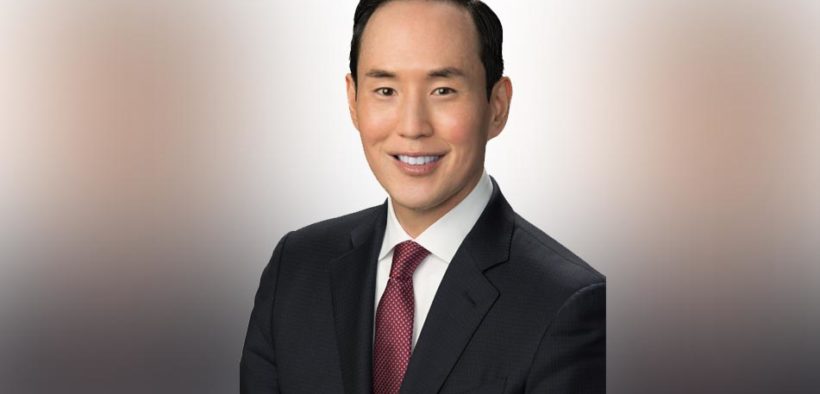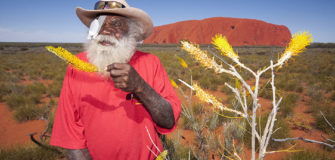Lance Kawaguchi is the newly-installed CEO of Cure Brain Cancer Foundation. Before taking the post, Lance spent over 25 years in the banking and investment sector and has since gained numerous awards. His accolades include the Outstanding Treasury4Good Leader for supporting Diversity & Inclusion in 2019 , he was recognised by the BAME100 Board Talent Index in 2018, and was one of UPstanding’s 100 leading ethnic minority executives in 2016.
Lance’s journey into the not-for-profit sector begins on a rather sombre tone: his own mother died due to cancer in 2016. Back then, Lance had already found success as leader in the banking and investments sector. Since his mother’s passing, he has spent his time looking for an opportunity to honour her legacy.
To honour her memory and life as a schoolteacher, Lance chose a disease that primarily affected children: brain cancer.
According to data from the Cure Brain Cancer Foundation, brain cancer kills more children than any other disease. Between 2011 to 2015, the Australian Bureau of Statistics recorded that 154 children aged 1 to 14 died of brain cancer. Another 122 died of Leukaemia, 47 died of heart disease, 29 of thyroid cancer, and 12 of heart defects.
“It kills more children in the US, Europe, North America, and Australia, but if you go back 20 years, there is still no difference in treatment options,” Lance said.
Lance understands that brain cancer, despite its high mortality rate, is under-researched and underfunded. Despite these difficulties Lance sees an opportunity to make a difference. In fact, brain cancer receives less than 5% of government funding from the National Health and Medical Research Council.
“Unfortunately all that doctors can say to the children and families affected by brain cancer is sorry, there’s not much we can do. There’s essentially minimal treatments, so the opportunity to build the brand, get the message out, is very exciting,” he said.
First major moves
With his background as a banking and financial expert, Lance Kawaguchi seems to be the perfect candidate as CEO. However, Lance’s main driver is to coordinate currently disparate efforts around the world to advance brain cancer research.
“I really want to collaborate with other charities in brain cancer not only in Australia but also globally. Charities seem to work in silos. What I’m trying to demonstrate is we don’t need to compete, we’re not for-profit. Let’s just focus on collaborating. If ten of us are investing $1 million, why not pool the money together to make sure that we can achieve something meaningful and on a larger scale,” he said.
It is in this same spirit that Lance has made one of his first major moves: reforming the foundation’s Scientific Advisory Committee. Noticeably, the new committee includes experts from other parts of the world, not just Australia.
As of this writing, the Cure Brain cancer Foundation’s Scientific Advisory Committee includes: Dr Webster K. Cavenee and Dr Timothy Cloughesy from the University of California, Dr Patrick Wen from the Harvard Medical School, Dr John F. de Groot from the University of Texas, Dr Alan Olivero of Olivero Consulting Inc., and Professor Angel Lopez, the head of the Cytokine Receptor Laboratory at the Centre for Cancer Biology in Adelaide.
“I don’t want to just focus on Australia because the best research is not only in Australia. What I would like to do is leverage the best minds working on brain cancer and bring treatment and information back to Australia. Because I think it will connect us more when we’re working with Dr. Wen in Harvard or Dr. Claus in UCLA. Because they are going to learn about the best treatments first, and we can get in early and bring back those treatments to Australia,” Lance said.
Major challenges
Like everybody else, Cure Brain Cancer Foundation experienced major challenges brought about by the COVID-19 pandemic. One of the major challenges for not-for-profits has been the difficulty in raising funding. Even as vaccines get distributed around the world and normalcy seems to be on the horizon, Lance Kawaguchi is still positive that digitization is the way to go.
“A lot of the revenue or income that’s generated by donors is actually from physical events such as galas, but the cost of production is actually quite high. The margins that can go back to the donors can be very low. What I’d like to do in the post COVID-19 environment is leverage our digital platform and to make sure that we can connect remotely in the near term, because it’s clear there won’t be as many physical events anytime soon,” he said.
Behind the scenes
His professional career aside, Lance Kawaguchi is also a family man. However, his approach to his personal life doesn’t appear to be drastically far from his life’s work. Lance said he focuses on family first, then health.
“The number one priority for me is family. I always tell my team, focus on your family, focus on your health, and then focus on your work. You can’t take care of work if you don’t focus on family. My wife, my kids, they are a priority,” he said.
Lance strives to live a healthier life, given that like his mother, his grandfather also passed away due to cancer. For this reason, Lance has adopted the vegan lifestyle since 1991 at the age of 16.
I’ve always been very interested in health. I truly believe that your own immune system really holds the potential to cure cancer and other diseases,”
In his free time, Lance said he reads about the latest research in biotech. Lance is specifically interested in oncolytic viruses, and how the immune system can be focused to fight cancer.
“I love learning about biotech, also about oncolytic viruses, something that can focus your immune system to attack the cancer calls and help avoid the use of chemotherapy,” Lance said.
“Chemotherapy for me is just like weed killer. You throw it on cells and it kills everything, it’s very toxic. So, I truly believe that there is going to be amazing opportunities in biotech and so that’s really what I spend my time on and I’m very passionate about it,” he said.
Paulo Rizal is a content producer for Third Sector news. He has working experience in journalism, SEO, and social media marketing.
























































































































































